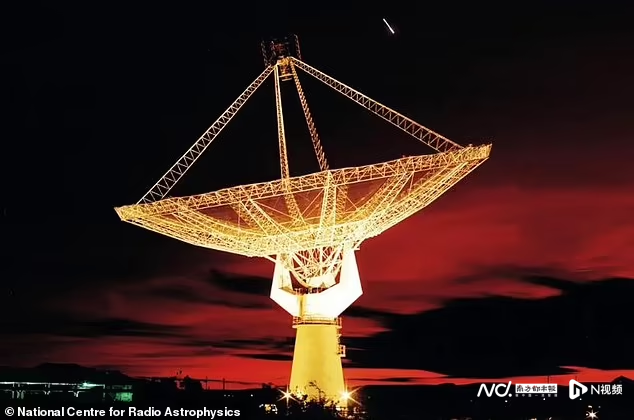Researchers in Canada and India, with the help of a giant telescope in India, recently captured radio signals from a galaxy called SDSSJ0826+5630, nearly 9 billion light-years from Earth. This is the first time such a radio signal has been detected from such a distant place.
The radio wave could reportedly allow astronomers to travel back in time and learn about the early universe. Scientists believe that the universe is about 13.7 billion years old.

For the first time, India's giant telescope received radio signals from galaxies nearly 9 billion light-years away.
This is the first time such a radio signal has been detected from such a distant place, and the Royal Astronomical Society announced the groundbreaking results in their monthly notice.
According to Asmologist and co-author Arnab Chakraborty, this is equivalent to looking back 8.8 billion years.
However, the signal was not sent by aliens, but from galaxies that formed when the universe was only 4.9 billion years old.
Chakraboti said that a galaxy emits different kinds of radio signals, and until now, it was only possible to catch this particular signal from nearby galaxies, limiting our knowledge to those galaxy closer to Earth.
The detection of this wave is a particularly critical discovery because this frequency is at a specific wavelength called the "21-centimeter line", also known as the "hydrogen line", which is the electromagnetic radiation spectral line with a frequency of 1420.
Hydrogen is distributed throughout space and can help map galaxies, and the "21-centimeter line" is used to do this.
India's giant telescopes are able to pick up weak signals due to "gravitational lensing."
"Gravitational lensing" is a naturally occurring phenomenon that amplifies signals from distant objects to help us peek into the early universe.
Researchers say "gravitational lensing" is a naturally occurring phenomenon that amplifies signals from distant objects to help us peek into the early universe.
Another galaxy bent the radio signal from SDSSJ0826+5630 and then amplified the wave so that Indian telescopes could pick it up.
Text/Nandu reporter Chen Lin